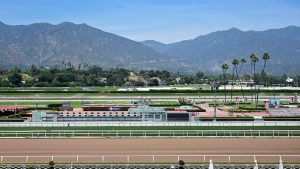PM Rishi Sunak refuses to rule out ban on strikes by emergency services
Rishi Sunak has refused to rule out banning emergency services from going on strike, saying he will “do what I need to do in order to keep people safe”.
A raft of public sector workers are set to take industrial action in the coming days and weeks, including nurses, ambulance workers and fire services, as they argue for better pay and working conditions amid the cost of living crisis and soaring inflation.
Politics latest: Starmer attacks ‘blancmange’ Sunak at PMQs
The PM has pledged a number of times that he will bring in tougher laws to curb the walkouts, saying earlier at Prime Minister’s Questions that it was his “duty” to act to “protect people”.
But the details of any legislation are still unknown and he is facing increasing pressure to set out his plans amid daily industrial action from various sectors.
Asked in an interview with the BBC on Wednesday whether he would consider banning strikes by emergency services, Mr Sunak said: “My priority is making sure that I keep people safe and that I minimise the disruption on their lives, and I will do what is required to do that.”
Pushed a second time, the PM still refused to rule the move out, saying: “We’ve been very reasonable in how we’ve approached these pay settlements. We’ve accepted the recommendations of independent bodies.
“But if union leaders are not going to be reasonable, then I need to do what I need to do in order to keep people safe, and to ensure that people can go about their day to day lives free of the enormous disruption that these strikes are going to cause.”
However, Labour’s shadow justice secretary Steve Reed put the blame for the strikes at the government’s door.
‘Terrified for the future’
Speaking to Sky News’ The Take programme, Mr Reed said: “What we are seeing is a Tory winter of discontent and it is happening because under this government for the last decade they have been in power, we have had the worst 10 years for wage growth since the Great Depression of the 1930s.
“Frankly, people can’t make ends meet, people can’t afford to heat their homes this winter… people are frightened to put their heating on, people can’t afford to buy food. We have got nurses… who are having to go to foodbanks to get food to feed themselves and their families.
“It should just not be the case that in a country like this people cannot afford to make ends meet and what that has resulted in is a wave of industrial action from people who are angry and terrified about the future.”
Mr Reed said Labour would “get the sides together and start talking about a way forward”, urging ministers to do the same.





